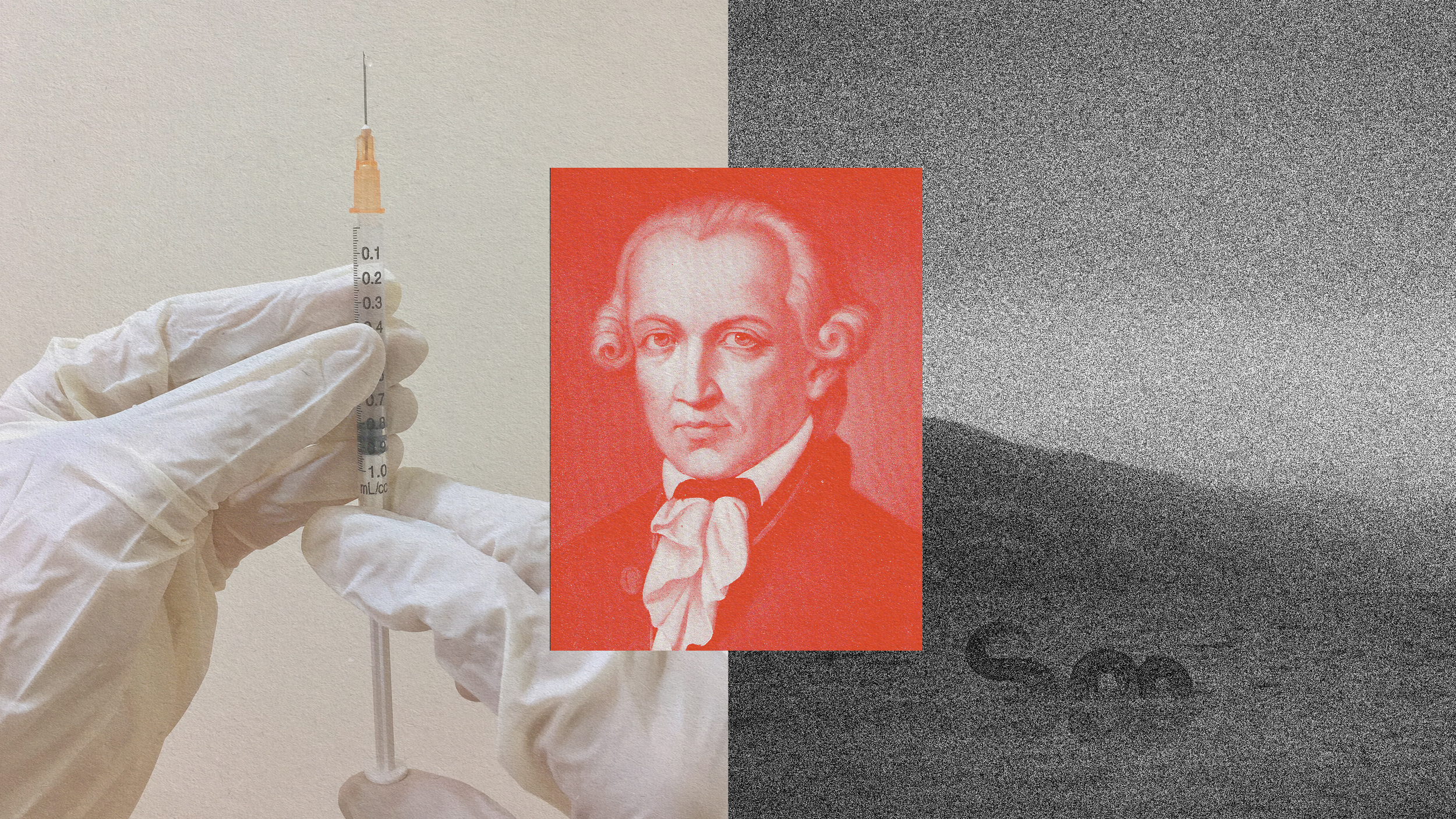The happiness problem: why Kant thought you’d never be happy

- For many people, happiness represents an idealized state where nothing can be wrong and there’s nothing for which we could want.
- The philosopher Immanuel Kant believed the world will never satisfy this condition: Everything in life is determinate and finite, so we will never meet the infinite criteria we establish for happiness.
- Kant believed we ought to focus on being moral, because it’s something we can achieve in this life. Then, we can hope to receive happiness after we die.
What does happiness mean to you? Does it mean riches, power, intelligence, or good looks? Does it mean having hundreds of friends and all your loving family around you? If so, there’s a problem.
After all, however rich you might be, you could be richer. However much you learn, there’s always something more to know. And however good looking you think you are, someone out there won’t find you attractive. So, if you could always be happier, could you ever be completely happy?
These are the questions and observations that led the philosopher Immanuel Kant to attack the idea of happiness as a goal worth pursuing.
Never quite full
The problem with happiness, Kant argued, is that “happiness is such an indeterminate concept that although every human being wishes to attain it, he can never say […] what he really wishes and wills.” This is because all of the elements that we think constitute happiness are empirical and resolutely determinate. All the things we think make us happy — money, health, love — are finite and could always be a bit better. In Kant’s words, we can never hope to “attain the totality of a series of consequences which are in fact infinite.”
For instance, if we seek health, how much stress will we experience over trying to keep or improve it? If we want to be rich, what “worry, envy, and harassment” will we bring upon ourselves in constantly seeking greater wealth? There’s never a moment when we can say we have met the “rich” criteria. We can never attain “health” or “wisdom” — there’s always one more hill to climb.
Still, the concept of “happiness” does not allow for broken parts. The idea of happiness is “an absolute whole, a maximum of welfare, in my present and every future condition.” To be happy, in the abstract sense, does not allow for dissatisfaction or distress. But this is exactly what the empirical world is made of. As such, we cannot build a fortress of happiness on the sandy land of transiency. (Kant would be turning in his grave at that.)
Don’t worry, be happy moral
Kant believed it was a mistake to pursue happiness. Rather, we should treat all the things we think lead to happiness as “advisings” — not necessarily as things to strive for. We’d be wrong to make major life decisions because we think they will provide happiness. After all, happiness is only an “ideal of the imagination,” Kant said. This is not to say that money, love, and health don’t provide pleasure, or that they can’t make us happy in certain degrees. But for Kant, these things will only “promote welfare on the average.”
Instead of making “be happy” a necessary imperative (i.e. something we have to do in life), Kant believed we’d be better to pursue a life of good action and morality instead. This is because, for Kant, right and wrong have definite answers, and it is easy to know when you’ve completed a moral action — you either do a moral act or you do not.
At least part of Kant’s attack on “happiness” was likely directed at the ethical systems that originated in Britain, namely utilitarianism, which maintained that right and wrong were defined by the pleasure (or happiness) they produced. Here, though, Kant argued that happiness can never be attained. In contrast, right and wrong can be.
Where happiness lies
Despite his reputation in history (he was often obsessive and particular), Kant was not some mean-spirited, puritanical miser. He often hosted dinner parties, was loyal and attentive to his friends, and left his manservant an unusually large wad of cash in his will. Kant did not think happiness was some trivial and dispensable trinket.
Although he believed worldly happiness, based upon transient material items, was impossible to attain, he did think there could be some metaphysical — or divine — happiness after death. In fact, he argued that this belief was a prerequisite to being moral at all. His “moral argument” for God maintains that if there were not some future hope for happiness, in due proportion, to our good actions, then there’s no rational answer to the question, “why bother being moral?”
There’s a lot of truth to what Kant wrote. Happiness always exists in the mind as some abstract goal — an ideal to which we ought to constantly strive. Yet it is peculiarly absent when we hunt or thirst for it. Happiness is often appreciated only in hindsight — and it’s usually something completely different from the concept of happiness that existed in our imaginations.
Jonny Thomson teaches philosophy in Oxford. He runs a popular account called Mini Philosophy and his first book is Mini Philosophy: A Small Book of Big Ideas.





